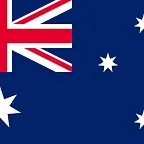
United States Subtitle
The United States of America (USA), also known as the United States (U.S.) or America, is a country primarily located in North America. It is a federal republic of 50 states and a federal capital district, Washington, D.C. The 48 contiguous states border Canada to the north and Mexico to the south, with the semi-exclave of Alaska in the northwest and the archipelago of Hawaii in the Pacific Ocean. The United States also asserts sovereignty over five major island territories and various uninhabited islands in Oceania and the Caribbean.[j] It is a megadiverse country, with the world's third-largest land area[c] and third-largest population, exceeding 340 million.[k]
Paleo-Indians migrated from North Asia to North America over 12,000 years ago, and formed various civilizations. Spanish colonization established Spanish Florida in 1513, the first European colony in what is now the continental United States. British colonization followed with the 1607 settlement of Virginia, the first of the Thirteen Colonies. Forced migration of enslaved Africans supplied the labor force to sustain the Southern Colonies' plantation economy. Clashes with the British Crown over taxation and lack of parliamentary representation sparked the American Revolution, leading to the Declaration of Independence on July 4, 1776. Victory in the 1775–1783 Revolutionary War brought international recognition of U.S. sovereignty and fueled westward expansion, dispossessing native inhabitants. As more states were admitted, a North–South division over slavery led the Confederate States of America to attempt secession and fight the Union in the 1861–1865 American Civil War. With the United States' victory and reunification, slavery was abolished nationally. By 1900, the country had established itself as a great power, a status solidified after its involvement in World War I. Following Japan's attack on Pearl Harbor in 1941, the U.S. entered World War II. Its aftermath left the U.S. and the Soviet Union as rival superpowers, competing for ideological dominance and international influence during the Cold War. The Soviet Union's collapse in 1991 ended the Cold War, leaving the U.S. as the world's sole superpower.
The U.S. national government is a presidential constitutional federal republic and representative democracy with three separate branches: legislative, executive, and judicial. It has a bicameral national legislature composed of the House of Representatives (a lower house based on population) and the Senate (an upper house based on equal representation for each state). Federalism grants substantial autonomy to the 50 states. In addition, 574 Native American tribes have sovereignty rights, and there are 326 Native American reservations. Since the 1850s, the Democratic and Republican parties have dominated American politics, while American values are based on a democratic tradition inspired by the American Enlightenment movement.
A developed country, the U.S. ranks high in economic competitiveness, innovation, and higher education. Accounting for over a quarter of nominal global economic output, its economy has been the world's largest since about 1890. It is the wealthiest country, with the highest disposable household income per capita among OECD members, though its wealth inequality is one of the most pronounced in those countries. Shaped by centuries of immigration, the culture of the U.S. is diverse and globally influential. Making up more than a third of global military spending, the country has one of the strongest militaries and is a recognized nuclear state. A member of numerous international organizations, the U.S. plays a major role in global political, cultural, economic, and military affairs.
Etymology
Documented use of the phrase "United States of America" dates back to January 2, 1776. On that day, Stephen Moylan, a Continental Army aide to General George Washington, wrote a letter to Joseph Reed, Washington's aide-de-camp, seeking to go "with full and ample powers from the United States of America to Spain" to seek assistance in the Revolutionary War effort.[22][23] The first known public usage is an anonymous essay published in the Williamsburg newspaper The Virginia Gazette on April 6, 1776.[22] Sometime on or after June 11, 1776, Thomas Jefferson wrote "United States of America" in a rough draft of the Declaration of Independence,[22] which was adopted by the Second Continental Congress on July 4, 1776.[24]
The term "United States" and its initialism "U.S.", used as nouns or as adjectives in English, are common short names for the country. The initialism "USA", a noun, is also common.[25] "United States" and "U.S." are the established terms throughout the U.S. federal government, with prescribed rules.[l] "The States" is an established colloquial shortening of the name, used particularly from abroad;[27] "stateside" is the corresponding adjective or adverb.[28]
"America" is the feminine form of the first word of Americus Vesputius, the Latinized name of Italian explorer Amerigo Vespucci (1454–1512); it was first used as a place name by the German cartographers Martin Waldseemüller and Matthias Ringmann in 1507.[29][m] Vespucci first proposed that the West Indies discovered by Christopher Columbus in 1492 were part of a previously unknown landmass and not among the Indies at the eastern limit of Asia.[30][31][32] In English, the term "America" usually does not refer to topics unrelated to the United States, despite the usage of "the Americas" to describe the totality of the continents of North and South America.[33]




